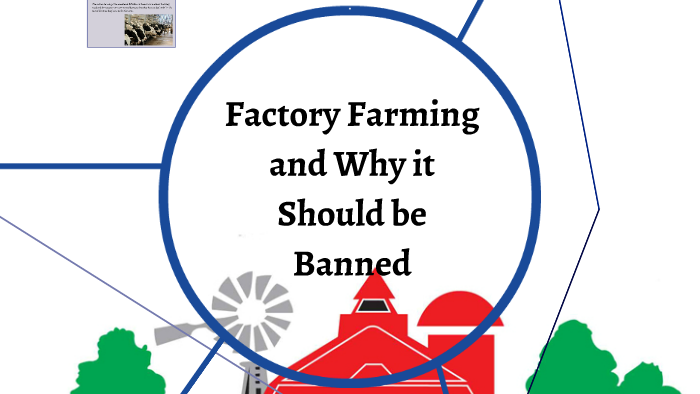Ban Factory Farming: Debating the Ethical Impact

Imagine waking up every day in a confined space, unable to move freely, with no sunlight or fresh air. This is the harsh reality for millions of animals in factory farms. As we continue to grapple with the ethical implications of modern agriculture, one question stands out: should factory farming be banned?
Understanding Factory Farming
Factory farming, also known as intensive animal farming, is a method of large-scale animal husbandry that prioritizes efficiency and profit. Animals are kept in overcrowded, often unsanitary, conditions with minimal space to move. This process may be efficient, but at what cost?
Factory Farm Conditions
Factory farm conditions are far from ideal for animal welfare. Chickens are often kept in battery cages with barely enough room to move, while pigs and cows are confined to gestation crates and feedlots. These conditions lead to physical and mental health issues for the animals, including stress, aggression, and disease. Is this the kind of treatment we want to subject our fellow living beings to?
Think about it this way: Would you confine your pet dog or cat in a small, dark room with no windows and no play area? This is essentially what we are doing to millions of farm animals every day. It’s a stark contrast to ethical farming practices, which prioritize the well-being and natural behaviors of animals.
Animal Welfare Concerns
The debate around animal welfare is not new, but the intensity has increased as more people become aware of the factory farm conditions. The public is increasingly concerned about the in humanity of factory farming and the treatment of animals. Organizations like Compassion in World Farming have been at the forefront of advocating for better treatment of farm animals.
The ethical impact of factory farming goes beyond animal welfare. It affects the environment, human health, and even our societal values. Factory farms produce enormous amounts of waste, which can pollute waterways and contribute to greenhouse gas emissions. This is the antithesis of eco-friendly agriculture. Are we willing to sacrifice our environment for the sake of efficiency?
The Ethical Implications
When we talk about the ethical implications of factory farming, we need to look at the broader picture. Factory farming has led to a dehumanizing approach to agriculture, where animals are treated as commodities rather than living beings. This dehumanization not only affects the animals but also the people who work in these conditions. Workers in factory farms often face poor working conditions and low pay, further exacerbating the ethical dilemmas.
On the other hand, promoting ethical farming practices can have a positive ripple effect. Organic farming, free-range systems, and grass-fed livestock are just a few examples of more humane and ethical farming methods. These practices prioritize animal welfare, produce healthier food, and are often more environmentally sustainable. Isn’t it time we started prioritizing these methods over the efficiency of factory farming?
The Way Forward
So, should factory farming be banned? The answer isn’t simple, but the arguments in favor of banning it are compelling. We need to consider the well-being of animals, the impact on our environment, and the ethical implications for our society. We need to actively promote eco-friendly and ethical farming practices that prioritize the welfare of animals and our planet.
Conclusion
In conclusion, the debate over whether factory farming should be banned touches on deep ethical issues that affect us all. As consumers, we have the power to drive change by supporting ethical farming practices and advocating for better animal welfare. It’s time to ask ourselves: Are we willing to continue supporting an industry that treats animals as mere products, at the expense of their welfare and our environment?
Join the conversation. Click
Frequently Asked Questions
1. What are the primary concerns with factory farming?
The primary concerns with factory farming include poor animal welfare, environmental pollution, and health risks for both animals and humans. Animals are often kept in overcrowded, unsanitary conditions, leading to stress, disease, and aggressive behavior.
2. How does factory farming affect the environment?
Factory farming contributes to significant environmental issues, including water pollution from animal waste, soil degradation, and increased greenhouse gas emissions. These practices are far from eco-friendly and have long-term detrimental effects on the planet.
3. Are there alternatives to factory farming?
Yes, there are several alternatives to factory farming. Ethical farming practices such as organic farming, free-range systems, and grass-fed livestock prioritize animal welfare, produce healthier food, and are more environmentally sustainable.
4. How can consumers contribute to ending factory farming?
Consumers can contribute to ending factory farming by supporting ethical farming practices. This can be done by choosing to buy products from farms that prioritize animal welfare and by advocating for policy changes that promote these practices.
5. What role do governmental policies play in factory farming?
Governmental policies play a crucial role in factory farming. Regulations that require humane treatment of animals, enforceable standards for animal welfare, and incentives for eco-friendly farming practices can significantly reduce the negative impacts of factory farming.
```
0 Response to " Ban Factory Farming: Debating the Ethical Impact"
Post a Comment